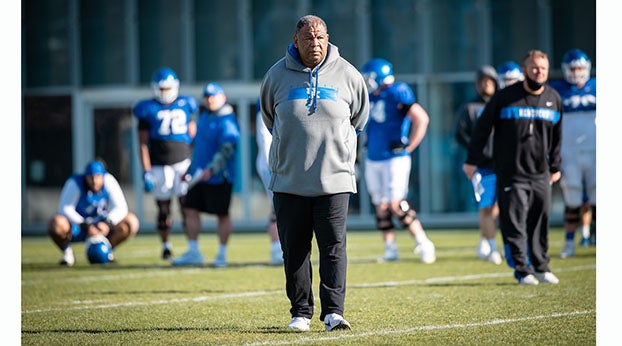Kentucky Afield Outdoors: Thinking ahead to fall hunting in the heat of summer
Published 12:11 pm Thursday, August 10, 2017
FRANKFORT, Ky. — Fall can seem like an eternity away when the heat index soars into the triple digits and air conditioners must work overtime to meet unrelenting demand.
The arrival of the new Kentucky Hunting and Trapping Guide from the Kentucky Department of Fish and Wildlife Resources provides a comforting reassurance that summer is marching closer to fall. The free guide ships to outlets that sell licenses and permits, but it also can be viewed and downloaded from Kentucky Fish and Wildlife’s website at fw.ky.gov.
A valuable resource for anyone who plans to participate in fall hunting seasons, the annual publication lists season dates and summarizes rules and regulations for deer, elk, bear, turkey, small game, furbearers and other species. It also provides information about licensing and permit requirements, youth hunting, quota hunts, public lands hunting and much more.
Changes since last year also are highlighted in the guide. There are several to note this year, including new or expanded hunting opportunities on wildlife management areas (WMAs) and state parks. An addendum to the bear hunting section of the guide is forthcoming. It will be available on the department’s website or by calling the department at 1-800-858-1549.
In addition to brushing up on the latest information, this also is a good time to start laying the groundwork for a safe and successful season.
Trail cameras have become a valued tool for many hunters. Derek Beard recently put up trail cameras on land he plans to hunt this fall in an effort to pattern deer before archery season, which this year opens Sept. 2 across the state.
“Trail cameras will give you an idea about what’s there,” said Beard, Bluegrass Wildlife Region coordinator for Kentucky Fish and Wildlife. “I look for high megapixel cameras and this time of year I like my flash cameras. They’re older trail cameras, but I like a colored nighttime picture because it helps me identify those deer a lot better and get a better idea of what they look like.”
Tree stands can offer hunters an advantage in the woods, but safety should always be foremost in mind when utilizing one.
Whether a stand has been left out in the elements since last year or is new from the box, it should be thoroughly inspected. Replace any damaged tethers, straps and lines. It’s also wise to inspect safety harnesses and ensure they fit properly.
If hanging a stand, pick a live tree that is relatively straight. Gabe Jenkins considers a few things before choosing a stand location.
“I want it close to where I’m expecting deer to be,” said Jenkins, the deer and elk program coordinator for Kentucky Fish and Wildlife. “Another consideration is what type of weapon that I plan to be using in that tree stand, whether it’s an archery setup or firearms or both. And accessibility.”
Something else to keep in mind: the invasive emerald ash borer has ravaged ash trees in recent years. While forest floors are littered with broken and shattered ash trees and their limbs, many dead ash trees are still standing.
“You need to really pay attention to the kind of tree you’re putting your stands in,” Jenkins said. “Especially in the Bluegrass, the dominant tree species can be ash. You do not want to put your stand in a dead ash tree or in close proximity to one.”
Now is a good time to beat the fall rush and pre-register for hunter education courses. Hunters who are not license exempt and were born after Jan. 1, 1975 must carry a valid hunter education card or hunter education exemption permit while hunting. Hunter education cards are obtained by completing a hunter education course. Courses are offered in person throughout the state, online or on a CD-ROM. Register online through the department’s website.
While there, explore all that it has to offer. Find a place to hunt with the WMA and Public Lands search or public shooting ranges. Buy licenses or permits. Consider subscribing to Kentucky Afield magazine, Kentucky Fish and Wildlife’s award-winning publication. The upcoming fall issue will explore grouse restoration efforts, profile hunters who harvested some of Kentucky’s most impressive bucks last year and preview fall hunting opportunities.
The hottest months of summer are upon us, but it’s never too early to start thinking about fall.
Author Kevin Kelly is a staff writer for Kentucky Afield magazine, the official publication of the Kentucky Department of Fish and Wildlife Resources. Get the latest from Kevin and the entire Kentucky Afield staff by following them on Twitter: @kyafield.





